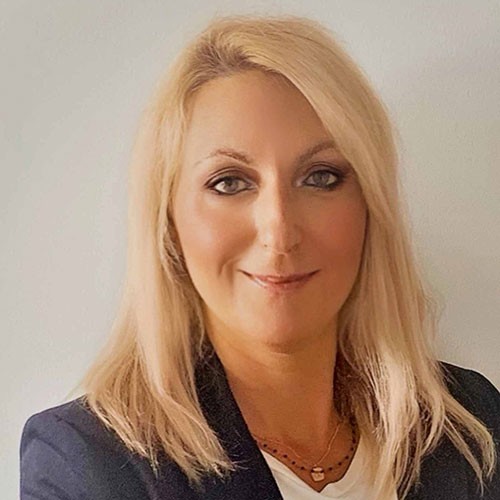
The accountancy profession has come to recognise inclusivity as a key front in the war for talent, embracing a deeper and broader emphasis. In 2022, Deloitte added both disability inclusion and neurodiversity to its global diversity ‘pillars’, while EY today operates some 23 neurodiverse centres of excellence worldwide. A 2021 ACCA survey, meanwhile, found that 76% of respondents in Ireland believed the profession to be inclusive, although 51% recognised more action was needed on this front.
Anna Boda, programme manager with Employers For Change, which provides free consultation and training for employers on accessibility issues, acknowledges that, for smaller firms in particular, ‘starting the implementation of a disability inclusion strategy can feel overwhelming’. But with financial support available, it’s a journey they are not alone on.
Professional services firms are increasingly required to think about accessibility from an external perspective
Professional services firms are increasingly required to think about accessibility from an external perspective as well. In Ireland’s Census 2022, more than 1.1 million people – 22% of the population – reported a long-lasting condition or disability. This means that practices need to look at how they engage with clients, service providers, peers, potential new recruits and the public at large.
Digital barriers
While the pandemic years transformed how we communicate online they appear to have had little impact on the challenge of digital accessibility. US-based WebAIM monitors key issues around website accessibility and its most recent report (see box) found only marginal improvements across the past five years.
Website woes
Analysing the home pages of the top one million websites, WebAIM’s 2024 study found the following issues:
- low contrast text: 81%
- missing alternative text for images: 54.5%
- missing form input labels: 48.6%
- empty links: 44.6%
- empty buttons: 28.2%
- missing document language: 17.1%
In Ireland, public sector bodies are legally obliged to ensure their websites are accessible to those with disabilities, but there is no such requirement for the private sector. This is set to change next year, with the implementation of the European Accessibility Act requiring e-commerce, telecoms, banking and transport companies to meet specific digital accessibility requirements.
‘We risk excluding one million people from engaging in everyday activities’
A 2023 study by IA Labs found just 27% of The Irish Times top 100 companies to be currently taking steps around digital accessibility. ‘If we don’t make a focused effort to improve digital accessibility, we risk excluding one million people from engaging in everyday activities,’ Chris White, group CEO at the National Council for the Blind of Ireland, noted in the study. ‘Ensuring your website is accessible would make an incredible difference to their lives.’
Companies such as ilikecake provide audits for Irish businesses looking to meeting the W3C Web Accessibility Initiative’s current Web Content Accessibility Guidelines (WCAG 2.0). The company points out that the ‘additional mark up and content used to make a site more accessible also has knock-on SEO [search engine optimisation] benefits’.
A Spanish high court decision earlier this year points to potential reputational damage for businesses keeping their heads in the sand. It fined Vueling Airlines €90,000 for having a website that didn’t comply with the country’s accessibility requirements.
Event management
In the realm of in-person events, progress also seems surprisingly slow. Oddmund Braaten, CEO of event tech company Interprefy, says concerted action is long overdue at an international level, ‘especially when technologies such as closed captions and audio guides can easily help those who would previously have found events hard to access’.
‘We should ask: Is there anything we can provide to help you engage in this event?’
Accessible All Areas is a recently launched UK initiative designed to upskill event organisers on disability inclusion. Co-founder Orla Pearson says that while it’s important to budget for accessibility, ‘there’s a myth that accessibility is expensive; it’s not’. She also points to the value of viewing questions of access from the perspective of those who need support, rather than those who provide it.
‘The question I see on registration sites is: Do you have any access requirements? Instead, we should ask: Is there anything we can provide to help you engage in this event?’ she says.
As professional services firms becomes more diverse, event inclusivity is an increasingly urgent topic. In September last year, the disAbility Legal Network launched a guide to planning and hosting more inclusive sectoral events. Caoimhe Grogan, the network’s vice chairperson, made clear the challenges from her own experience. ‘At every single event I attend, there is without fail a visual aspect to the presentation which is not explained for my benefit or others who may have a visual impairment,’ she says. ‘If I am lucky, a colleague will quietly provide a visual description of what is happening. However, I am often left feeling a bit excluded.’
Boda agrees that it is time for progress and points to ‘many easy, practical steps you can take to ensure your event is as inclusive as possible’ (see box).
Everyone welcome
Employers for Change suggests a number of ways that you can make events more open and accessible.
- Choose a venue with ramps, lifts and accessible restrooms. Ensure clear signage and good lighting.
- Highlight accessibility considerations related to the event, such as captioning, interpreter provision and physical description of the venue.
- Provide a method of contact for questions about accessibility.
- Offer live captions and audio descriptions, and plan well in advance for services such as Irish Sign Language interpreters.
- Train staff on disability etiquette and assisting attendees with different needs.
- Provide options for service animals and assistive technology users.
- Use clear and concise language in promotional materials.
- Offer materials in multiple formats (eg large print and Braille).
- Read the Employers for Change Inclusive and Accessible Communications Toolkit.
- Consider having quiet spaces for those who need sensory breaks.
- Are breakout activities accessible for everyone? For example, high tables may create difficulties for some.
- Offer online participation options for those who can’t attend in person.
- Provide alternative ways to participate, such as online polls or chat functions for virtual attendees.
- Offer food options that cater to various dietary restrictions (for example, vegetarian, vegan, gluten-free) and include allergy warnings.
The same thoughtfulness could also make all the difference in improving general accessibility, Boda adds. She recommends steps such as using your email signature to highlight the fact you are happy to accommodate client requests around meetings, as well as offering consultations in diverse formats, and creating sensory-friendly environments. ‘Something as simple as dimming the lights can make a big difference,’ she says.
Beyond box ticking
Disability inclusion has, of course, broader political and social dimensions, and the country has some distance to travel, even by the government’s own metrics. Ireland ratified the United Nations Convention on the Rights of Persons with Disabilities in 2018 but the policies and strategies needed to ensure its full implementation are not yet in place.
‘Too often there has only been lip service paid to participation’
As recently as April this year, the DPO Network commented that ‘too often there has only been lip service paid to participation. Often this amounts to little more than tokenism and a box-ticking exercise’.
Reflective of that frustration, the country’s new national disability strategy, currently under development, is ‘expected to be more explicitly focused on outcomes’, according to Roderic O’Gorman, Minister for Children, Equality, Disability, Integration and Youth. ‘It will also necessarily concentrate on a tighter and more targeted number of ambitious actions that will deliver the most significant change and progress.’
Accountancy firms may not yet be under the spotlight in terms of new legislative demands, but many recognise that it is time to create more accessible and inclusive environments for the benefit of everyone.
More information
Find out about Global Accessibility Awareness Day on 16 May



